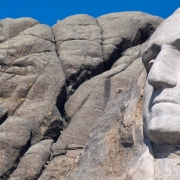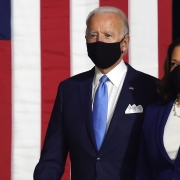George Washington Knew Something About Civility, And Decency.
Americans have given up commemorating George Washington’s February 22 birthday in exchange for a 3-day weekend. One of the downsides is that we are now more likely to overlook the wisdom he has to offer us. That is particularly unfortunate following an intensely uncivil and partisan election, whose subsequent “unity” has continued to be uncivil and partisan.
America’s “indispensable man,” as historian Forrest MacDonald termed him, offered us insights into civility and what we should abandon partisanship to unite around.
As to civility, our beltway elbow-throwers could benefit from reading Washington’s “Rules of Civility and Decent Behavior in Company and Conversation.” Written before Washington was 16, it summarized important facets necessary for him to behave “according to the custom of the better bred.”
Consider some of the advice George Washington gave himself:
Every action…ought to be with some sign of respect to those that are present.
Speak not when you should hold your peace.
Show not yourself glad at the misfortune of another.
Always submit your judgment to others with modesty.
In reproving, show no sign of choler but do it with all sweetness and mildness.
Take all admonitions thankfully.
Mock not nor jest at anything of importance.
Wherein you reprove another be unblameable yourself.
Neither curse nor revile.
Let your conversation be without malice or envy.
In all causes of passion admit reason to govern.
Speak not injurious words, neither in jest nor earnest.
Detract not from others.
Be not obstinate in your own opinion.
Reprehend not the imperfections of others.
Think before you speak.
Undertake not what you cannot perform.
In disputes, be not so desirous to overcome as not to give liberty to each one to deliver his opinion and submit to the judgment of the major part.
Contradict not at every turn what others say.
Speak not evil of the absent, for it is unjust.
George Washington’s commitment to decorum has been thoroughly trampled in America’s ongoing political uncivil war. We could benefit greatly from deflating the incivility that besets us, in his honor.
However, even more important would be once again looking to the principles Washington articulated for governing:
The cause of America [is] liberty.
Express your utmost horror and detestation of the Man who wishes, under any specious pretenses, to overturn the liberties of our Country.
Liberty will find itself…where the Government…[will] maintain all in the secure and tranquil enjoyment of the rights of person and property.
Under [government’s] protection; everyone will reap the fruit of his labors; everyone will enjoy his own acquisitions without molestation and without danger.
[Government] has no more right to put their hands into my pockets, without my consent, than I have to put my hands into yours.
Government is not reason. It is…a dangerous servant and a terrible master. Never for a moment should it be left to irresponsible action.
George Washington’s character was important to our founding, but even more so, his actions were essential to our revolution’s success and the creation of America as “this land of equal liberty.” He recognized that “preservation of the sacred fire of liberty and the destiny of the republican model of government are justly considered, perhaps, as deeply, as finally staked on the experiment entrusted to the hands of the American People,” and provided core principles that provide a useful model in that direction.
But we have turned to honoring those principles more in the breach than the observance. We could greatly benefit from reviving those principles, which made him “First in war, first in peace, and first in the hearts of his countrymen.”
Gary M. Galles is a professor of economics at Pepperdine University.





